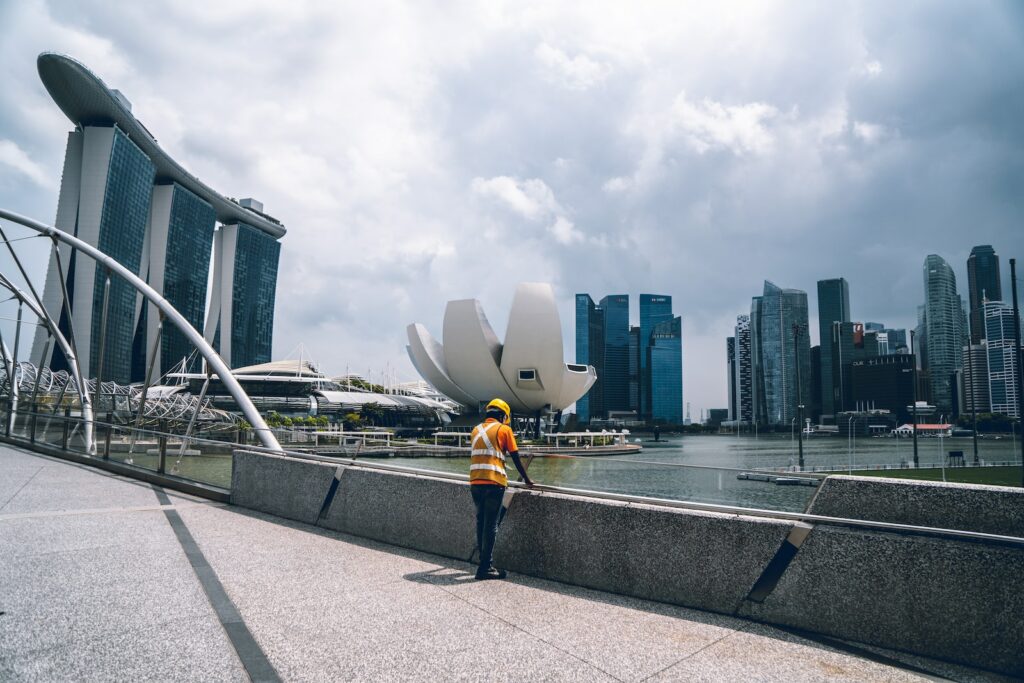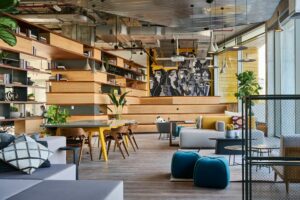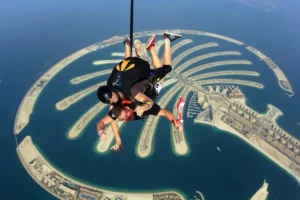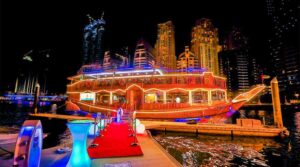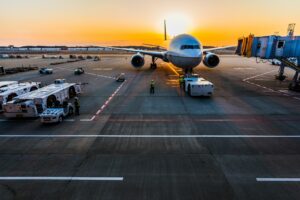Dubai is a global metropolis with cutting-edge facilities, rapid economic development, and a thriving cultural scene.
However, the city’s substantial reliance on foreign employees is a reality that many visitors to the city need to pay attention to.
Indeed, more than 90 percent of Dubai’s population comprises expatriates, making it a city with one of the largest percentages of foreign employees in the world.
This article will discuss why Dubai relies so heavily on foreign workers.
Why Do Dubai Relies So Heavily On Foreign Workers?
Dubai has had significant urban expansion and improvement in the past few decades. Less than sixty thousand people lived there when it was a fishing and commerce community in the 1960s.
With a current population of nearly 3,000,000, this city has become an international center for banking, trade, and tourism.
The city’s reliance on foreign labor is largely responsible for its rapid economic development.
Dubai’s reliance on foreign workers is the result of several interrelated circumstances. The make-up of the population is a key factor.
Around 10% of people in the United Arab Emirates are actually from the UAE.
This has led to a need for more local workers in construction and the hotel industry, both of which have been essential to Dubai’s rapid development.
The high cost of living in the city of Dubai is another contributor.
The city is one of the most costly in the world despite its great quality of life and advanced infrastructure.
This has made it more challenging to hire locally since many people choose the greater pay and perks offered by the public sector.
Dubai’s reliance on foreign labor is partly facilitated by the city’s accommodating attitude toward international employees.
Tax exemptions, modern amenities, and a high standard of life all contribute to the city’s allure as a place to work and settle temporarily or permanently.
Dubai has aggressively sought out international employees from nations like India, Pakistan, Bangladesh, and the Philippines to address labor shortages.
Concerns concerning labor rights, human trafficking, & social integration have arisen in light of Dubai’s substantial dependence on foreign workers.
It has been claimed that many foreign employees in Dubai are exploited by their employers by receiving poor salaries, working long hours, & living in deplorable circumstances.
Moreover, claims of human trafficking & forced labor have surfaced throughout the metropolitan area.
Why Migrant-Dominated UAE Model Is Unsustainable?
The Kafala System
In the United Arab Emirates, migrant workers are largely “sponsored” by their employers, who are primarily private corporations searching for sources of inexpensive labor, as is the case in the rest of the Gulf Cooperation Council member states that use the Kafala system.
On paper, the Kafala system provides workers with several fundamental protections, including paid vacation and maternity leave and the assurance that they would be paid consistently.
In addition, the system makes it illegal for companies to withhold employees’ passports or require them to put in more than eight hours of labor daily.
Nevertheless, a report from the US Department of State in 2019 stated that the UAE government “rarely investigated” infractions of Emirati legislation controlling the Kafala system, such as the widespread seizure of passports and the late or nonpayment of payments.
Citizenship Rules
Citizenship in the United Arab Emirates (UAE) is only granted to individuals whose families have resided in any of the seven Emirates before 1925.
There is no pathway to citizenship or permanent residency in the nation. Hence, temporary employees are not eligible for permanent residency.
They are hired for one to three-year terms at most.
The kafala system mandates that all non-citizens have a local sponsor to work legally in the country.
Using this approach, the state relinquishes responsibility for administrating and controlling migrant labor to private organizations.
Employment brokers in the kafala system have close ties to the UAE’s royal family and ordinary inhabitants.
The migrant workers pay a fee to brokers, who function as their sponsors and take on legal and financial responsibilities for their stay.
Precarious peace
Due to the lack of residence rights for foreign employees, the primary method of maintaining religious and ethnic tolerance in the workplace is the threat of deportation.
Most workers are men since only those making above AED 10,000 per month (about $27,000) can bring families. Most workers put in at least 8 hours a day, 4 to 5 days a week, and then return to their packed homes in the labor camps far from their workplaces.
Professionals, including physicians, engineers, and accountants, comprise around 5% of the labor force.
Exposure to a multiethnic and multireligious community improves people’s ability to coexist peacefully despite such a system.
Unsustainable
The United Arab Emirates (UAE) is a prime example of how exclusionary governments like theirs cannot last.
These countries need to transition from a labor-intensive economy that relies on manual labor to a capital-intensive, high-tech one that relies on fewer but more highly trained employees and professionals.
The United Arab Emirates’ (UAE) efforts to nationalize the workforce have been unsuccessful.
Due to a lack of sufficient skills to take on highly specialized professions, just 1% of the national labor force is private.
As the country’s relatively prosperous population enters the demographic transition, it is also seeing a reduction in fertility, with the birth rate falling from 6.9 in 1960 to 1.8 now.
Conclusion
There are many causes for Dubai’s need to rely so heavily on foreign laborers. In recent years, the city’s tremendous expansion and development have resulted in a need for more available workers.
Moreover, Dubai’s economy depends on sectors like construction, hospitality, and tourism, all of which employ many low- and middle-skilled people. Foreign employees are prepared to accept lower compensation to fill these positions.
Dubai’s unusual economic and social circumstances are reflected in the city’s strong dependence on foreign employees.
While millions of foreign employees have undoubtedly contributed to the city’s success, they must be shown the respect and dignity they deserve in the workplace.
By resolving these issues, Dubai can maintain its position as a worldwide center for commerce, tourism, and innovation, all while remaining committed to social responsibility & respect for human rights.
Reference
- Hassan, R. (2018, April 27). Why migrant-dominated UAE’s exclusionary nationalisation model is unsustainable. Scroll.in. https://scroll.in/article/876826/why-migrant-dominated-uaes-exclusionary-nationalisation-model-is-unsustainable
- Kanso, H. (n.d.). UAE on track to improve conditions for migrant domestic workers: rights organization. U.S. https://www.reuters.com/article/us-emirates-migrant-workers-idUSKBN18Z2DN
- Migrant Workers Face Discrimination, Forced Labour Practices at Dubai Expo 2020. (n.d.). The Wire. https://thewire.in/world/dubai-export-2020-migrant-workers-discrimiantion-forced-labour
